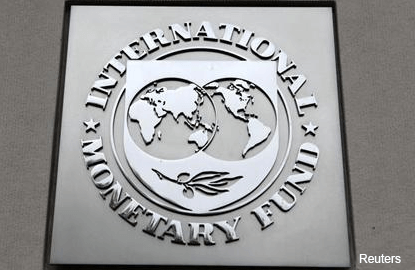
KUALA LUMPUR (April 7): The prolonged impact of a low interest rate environment would present a considerable challenge to financial institutions in the long run, according the International Monetary Fund's (IMF) Global Financial Stability report published this month.
"Over the long term, the scenario would entail significant changes to the business models of banks, insurers, and pension funds and the products offered by the financial sector," it said in chapter two — entitled Low Growth, Low Interest Rates, and Financial Intermediation — of its report.
The report said advanced economies have undergone a prolonged stint of low interest rates and low growth since the global financial crisis, with interest rates being on a decline over the last three decades.
"A combination of slow-moving structural factors, notably population aging and slower productivity growth common to many advanced economies, could conceivably generate a steady state of lower growth and lower nominal and real interest rates in [countries such as the United States and Japan]," it added.
The report added that in such a low-interest environment, yield curves would likely flatten thereby lowering bank earnings and posing long-term challenges particularly for life insurers and defined-benefit pension funds.
"If bank deposit (interest) rates cannot drop (significantly) below zero, bank profits would be squeezed even further. Smaller, deposit-funded, and less diversified banks would be hurt most, which could increase the pressure to consolidate," it added.
IMF said policies would assist in easing the adjustment of institutions to such an environment, adding that prudential frameworks would need to provide incentives to ensure longer-term stability as opposed to bowing to the pressure of demands for deregulation as a short-term fix.
"For banks, policies should help facilitate smooth consolidation and exit of nonviable institutions, while limiting excessive increases in risk taking and ensuring that the too-big-to-fail problem does not worsen," the report suggested.
"Implementing economic solvency requirements that encourage life insurers to undertake necessary adjustments to their business models would be vital," it added.